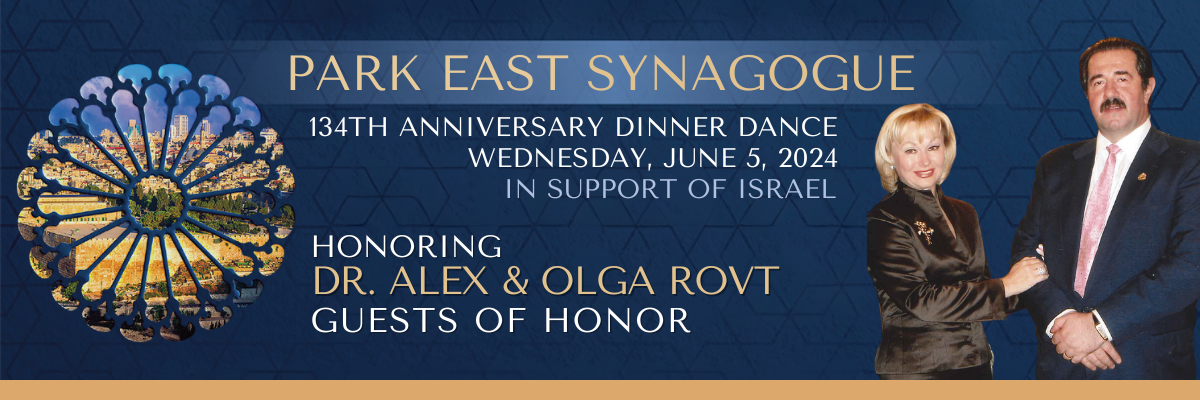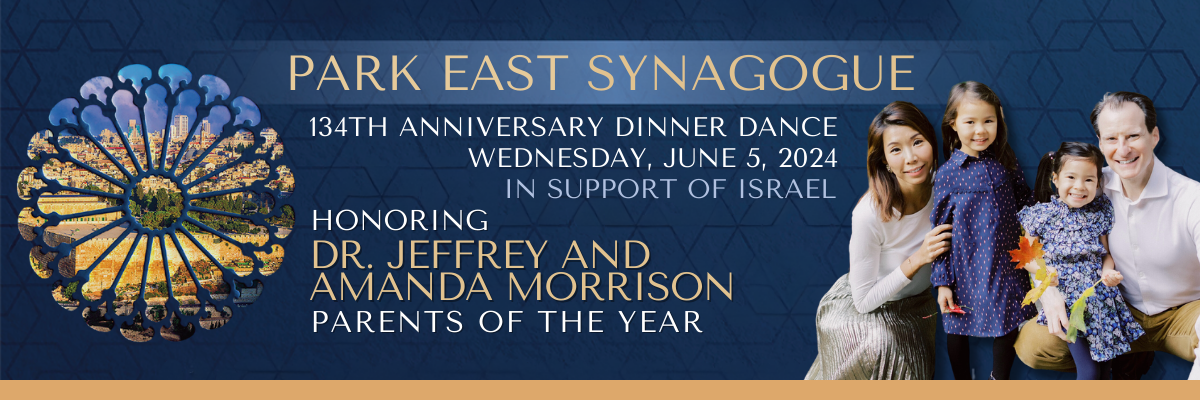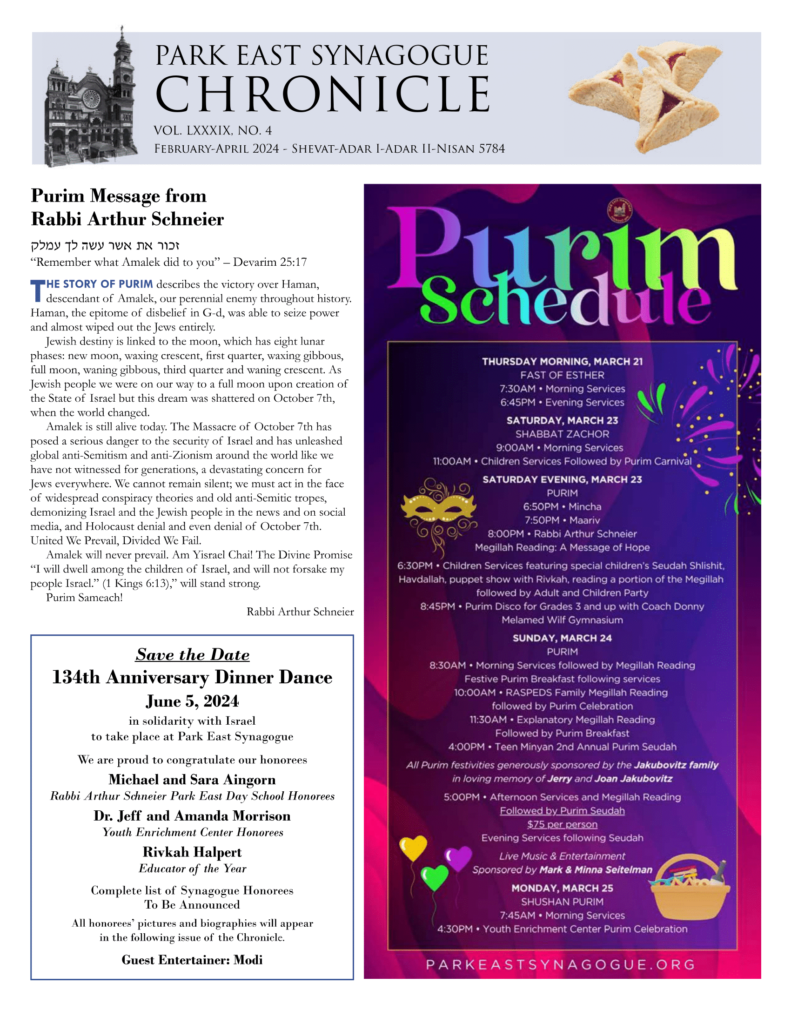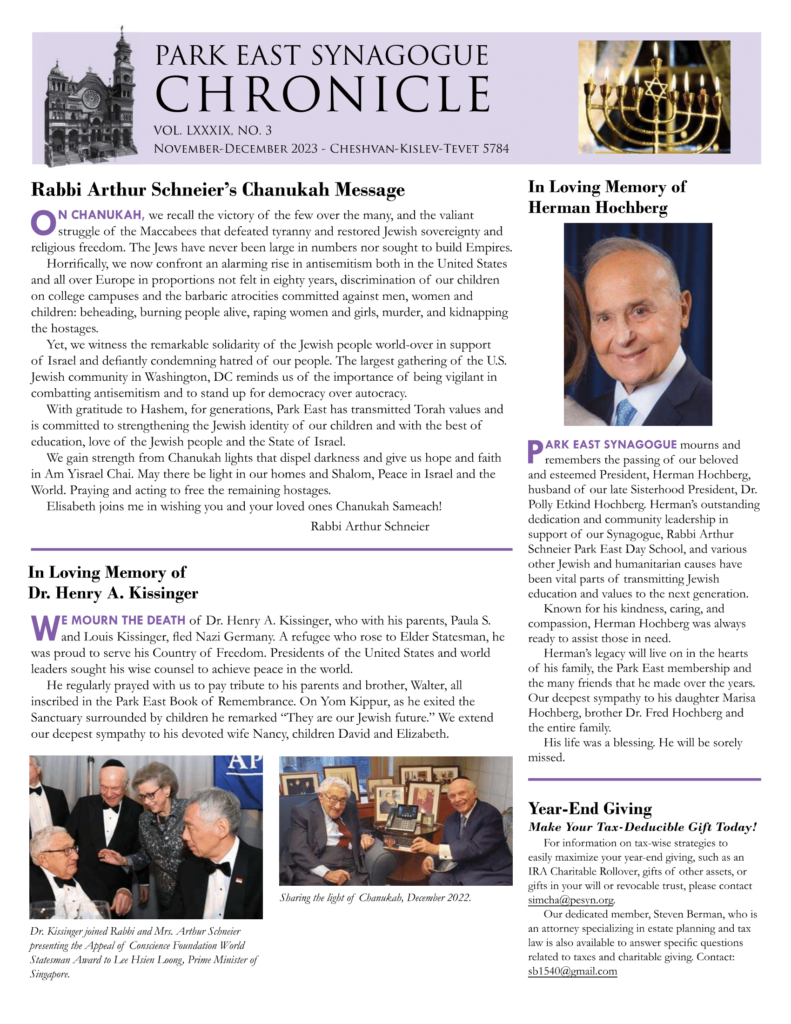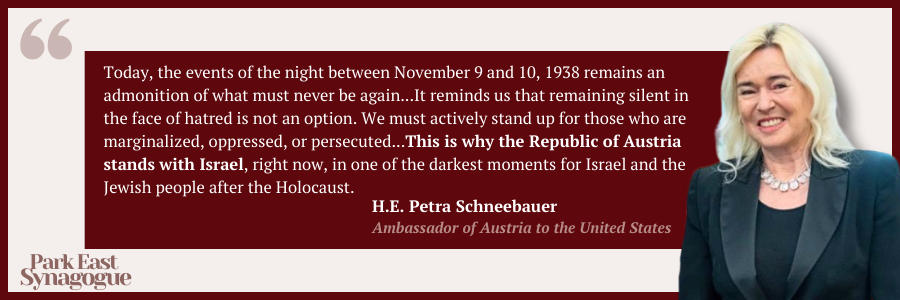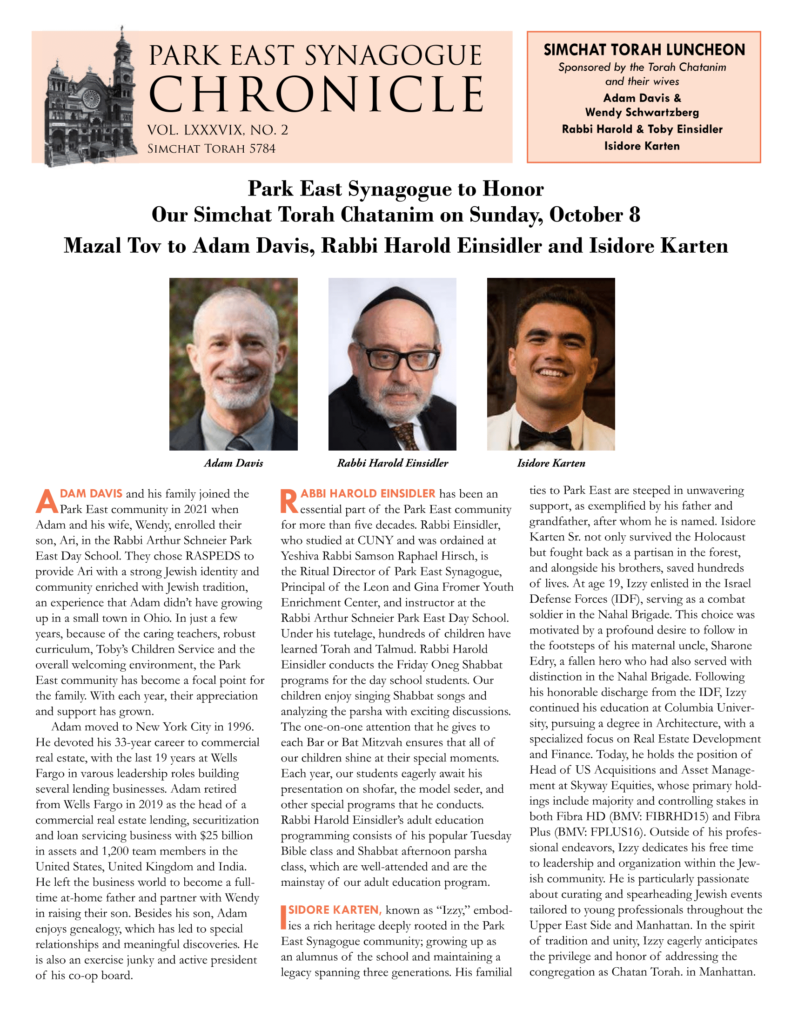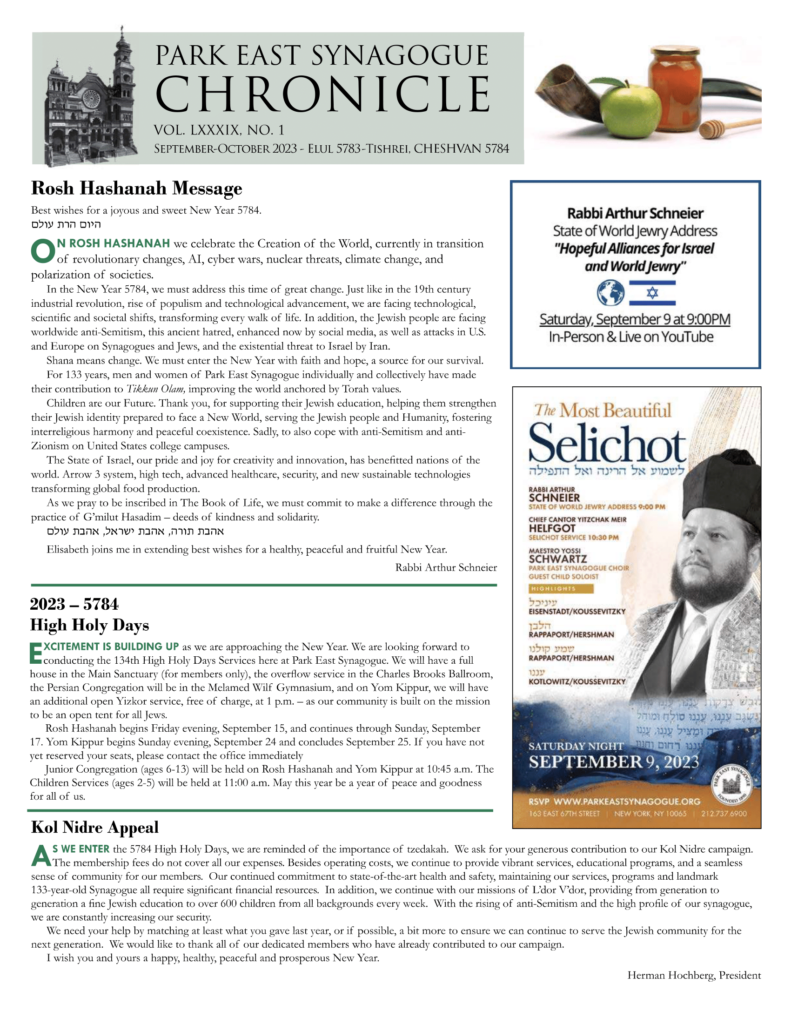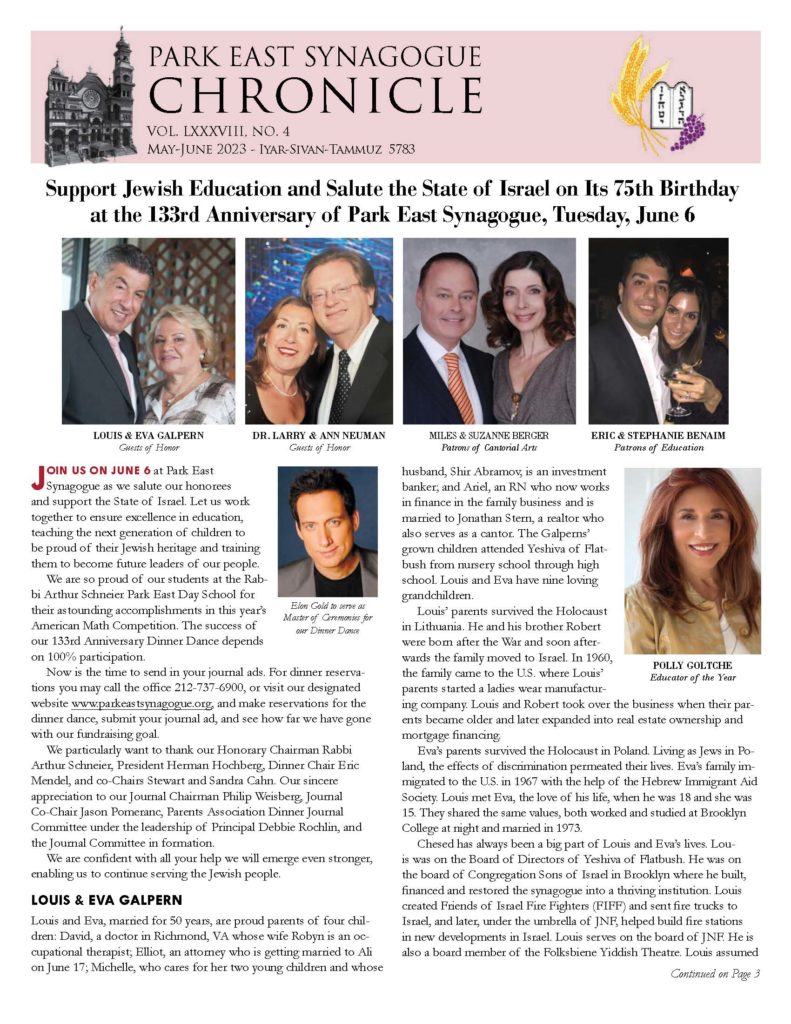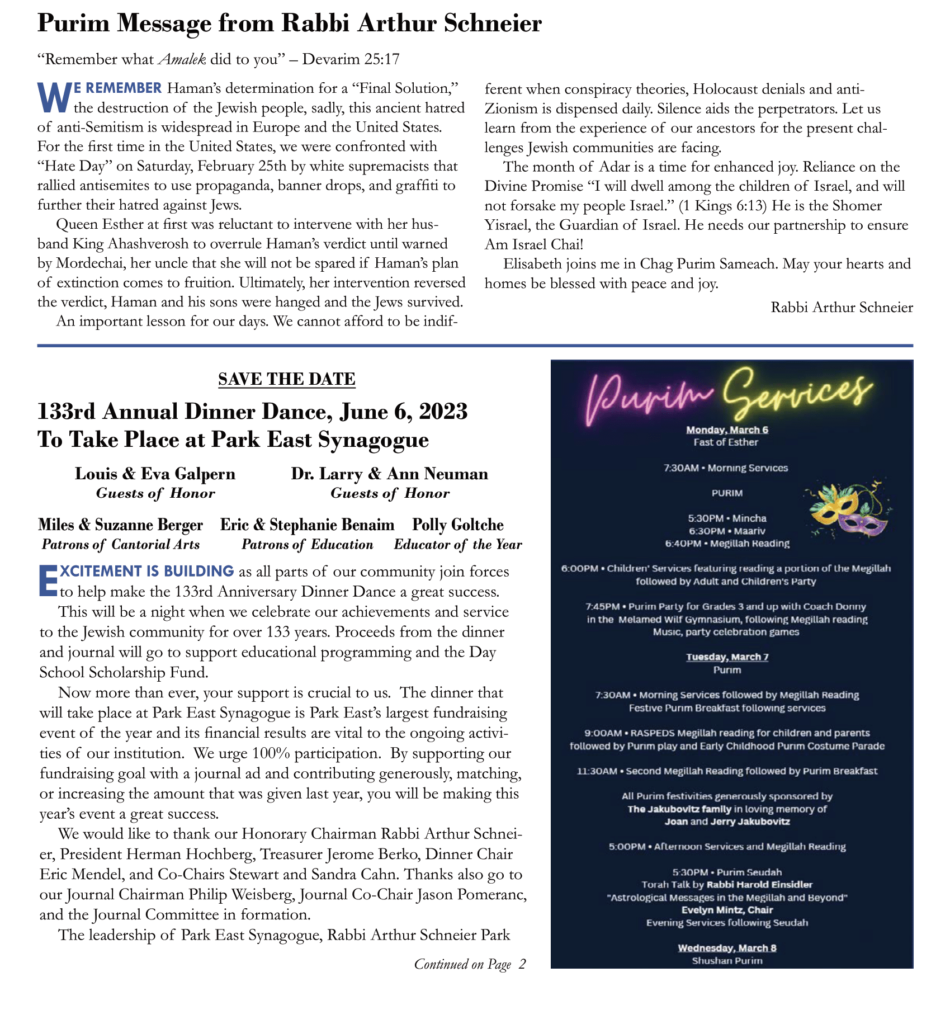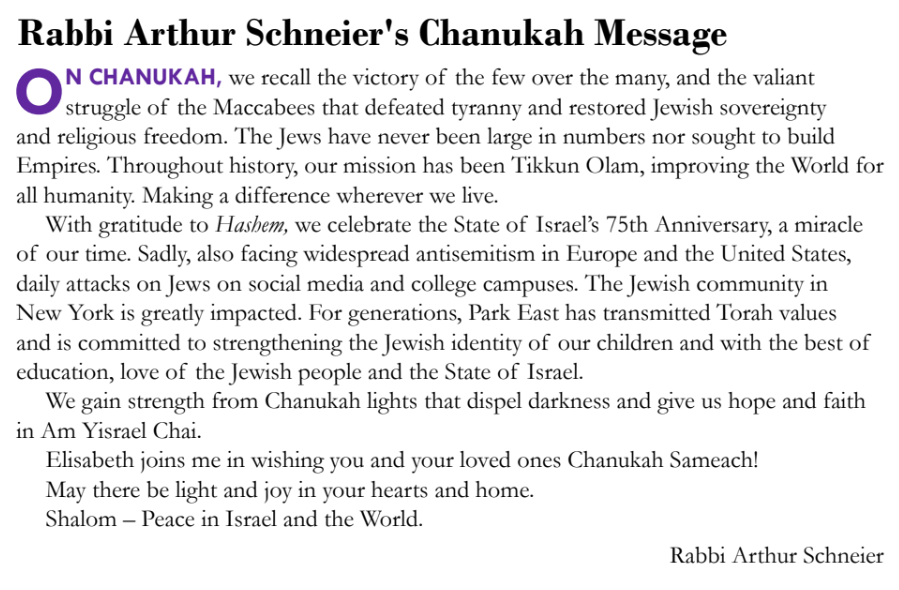Message delivered by Petra Schneebauer
Ambassador of the Republic of Austria
to the United States of America
at Park East Synagogue, NY, on November 11, 2023
Lessons of Kristallnacht for today
It is an enormous honor, Rabbi Schneier, to reflect upon an event in history that shook our society to the core and which now resonates more than ever. During Kristallnacht, 85 years ago, the until then unthinkable happened. Now, 85 years later, again a new wave of antisemitism is threatening Jewish life across the world. Today, synagogues, Jewish schools, and Jewish businesses are being targeted by vandals, and Jewish people are constantly facing harassment and violence. This resurgence is a stark reminder that antisemitism is not a relic of the past but real and a danger of the present.
During Kristallnacht, violence was unleashed against Jewish citizens. Nazi thugs orchestrated attacks against thousands of Jewish businesses, and also looted hospitals, schools, and homes. The date of the evening of 9 to 10 November 1938 marked a new level of unprecedented violence against Jews.
The name “Night of Broken Glass” itself emphasizes the countless shattered windows and glass strewn across the streets in the aftermath. But, historically, Kristallnacht is much more than the physical destruction, for it marked a turning point in the persecution of Jews and foreshadowed the horrors of the Holocaust.
Austria looked away for too long, only belatedly did we come to terms with our role as perpetrators of the crimes and the historical responsibility that comes with it. In view of the terrible, barbaric acts committed against Jews throughout Germany and Austria, it is the duty of all Austrians to stand up resolutely and with the deepest conviction against all forms of antisemitism. Kristallnacht serves as a stark reminder of the consequences of hatred, prejudice, and intolerance. Its relevance for today cannot be overstated.
Historically, outbursts of antisemitism have often been signs of societies in deep trouble and tragic omens that extremism and violence are imminent. We must remember that it was a climate of rising antisemitism and dehumanization that allowed such a horrible instance to occur. It has clearly shown us that, prejudice can escalate into persecution and violence, if left unaddressed.
Today, the events of the night between November 9 and 10, 1938 remains an admonition of what must never be again. Yet, unchecked hatred is still a reality for Jews today, who fear for their security and for their lives.
The horrific terrorist attack and massacre caused by Hamas on October 7 has sparked hundreds of anti-Israel protests around the world, including here in the United States, but also in Europe, and even unfortunately in my home country of Austria, where the Jewish section of Vienna’s main cemetery was attacked. This incident fills me with shame. Let me cite the Chief Rabbi of the Jewish Community Vienna, Jaron Engelmayer: “It takes us back to times where books were burned…it is an attack on the spiritual values of the religion and of humanity which happened here.”
Appalling attacks like this one serve as a reminder that we in Austria bear a particular historic responsibility to stand up against all forms of antisemitism whenever and wherever we witness them. And today, these incidents occur in more than one dimension, they occur both in the physical world and in digital spaces.
Indeed, one of the most alarming aspects of contemporary antisemitism is the prevalence of online hate speech and conspiracy theories. Social media platforms and the internet have provided a platform for the rapid spread of anti-Jewish propaganda, stereotyping, and conspiracy theories. These digital spaces have enabled hatred to reach new audiences, amplifying the dangers of antisemitism on a global scale, which also translates into actions in the physical world:
All these developments underscore the importance of safeguarding democratic institutions and the rule of law. The events of Kristallnacht occurred with the tacit approval of the government, highlighting the catastrophic consequences when those in power do not actively protect the rights and dignity of all citizens. In our present times, we must remain vigilant in upholding the principles of democracy and ensuring the protection of all citizens.
Furthermore, these events emphasize the vital role of education and remembrance. In the light of recent events, we see that we must do everything possible to educate ourselves and future generations about the atrocities of the past. It is only through knowledge and understanding that we can combat ignorance and prevent the resurgence of hatred. And we must remain vigilant!!!
The relevance of Kristallnacht today lies in our collective responsibility to speak out against injustice and discrimination. To speak out against antisemitism, whenever and wherever we see it. It reminds us that remaining silent in the face of hatred is not an option. We must actively stand up for those who are marginalized, oppressed, or persecuted. As Elie Wiesel once said, “Neutrality helps the oppressor, never the victim.” While Austria may be militarily neutral, we will always speak out against antisemitism and will never be politically or morally neutral. This is why the Republic of Austria stands with Israel, right now, in one of the darkest moments for Israel and the Jewish people after the Holocaust. Austria has stated very clearly that Israel´s right to self-defence in the face of terror, as enshrined in international law, has to be recognized.
And this concerns all of us. The dangers of antisemitism are not confined to the Jewish community alone. They threaten the very fabric of our pluralistic and inclusive societies. When one group is targeted for hatred, it erodes the trust and social cohesion we all rely on. The fight against antisemitism is a fight for a world where all individuals can live free from fear and discrimination, regardless of their background, faith, or ethnicity. It is a fight for democracy.
As Austrian Federal President Van der Bellen stated, it is our duty and perpetual responsibility to take firm and decisive action against all forms of antisemitism. This also means confronting stereotypes and prejudices, promoting education and understanding, and advocating for strong laws and policies that combat hate speech and hate crimes. It means standing in solidarity with Jewish communities and rejecting any form of bigotry. This is why Austria has developed, as one of the first EU member states, an antisemtisim-strategy which is rapidly implemented.
In conclusion, the dangers of antisemitism are not a concern solely for the Jewish community; they are a concern for all of us who cherish the values of tolerance and inclusivity. As responsible and compassionate citizens, we must actively work to root out antisemitism in all its forms and ensure that our societies remain beacons of diversity, respect, and unity. Together, we can combat this menace and create a better, more tolerant world for generations to come. Thank you!

